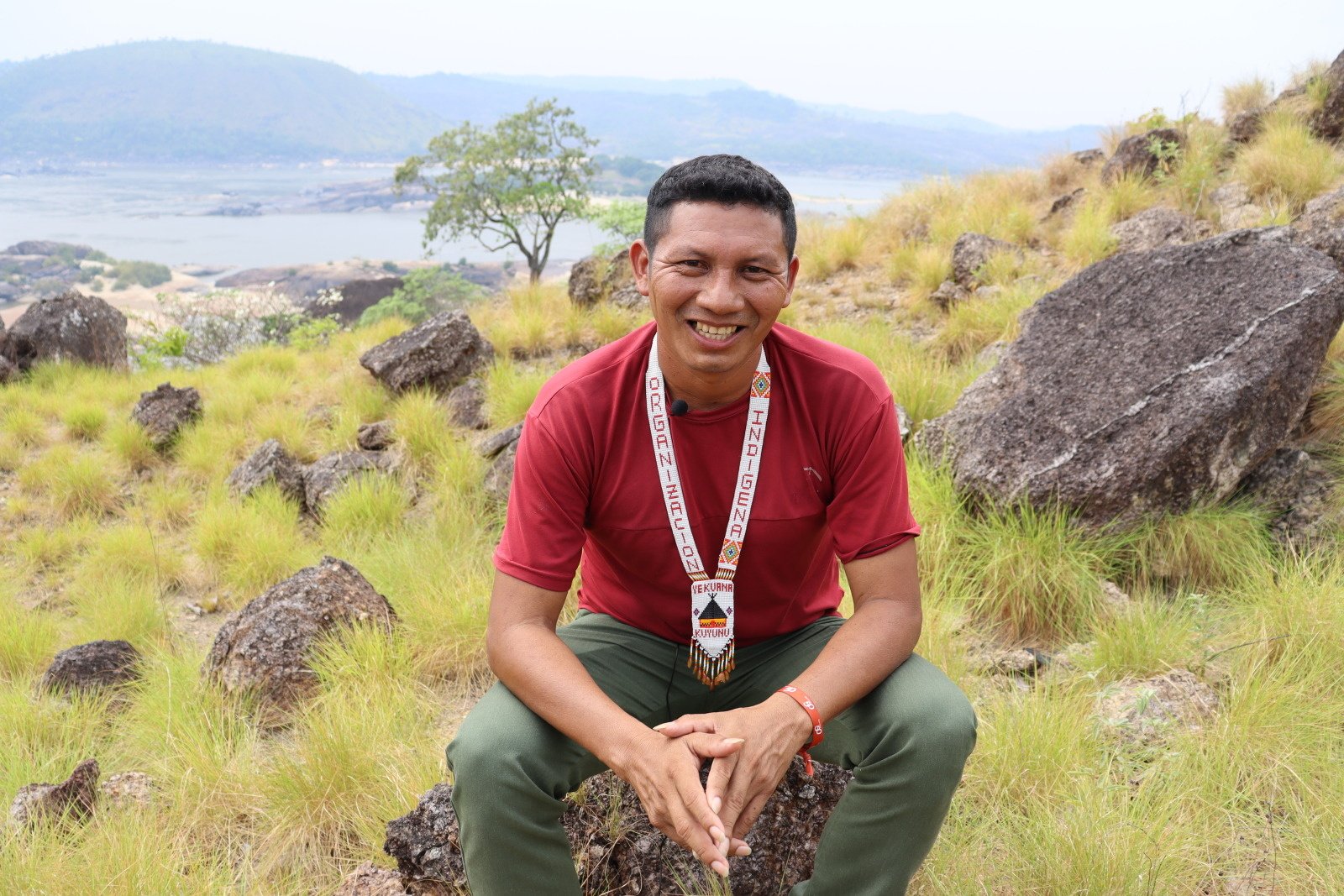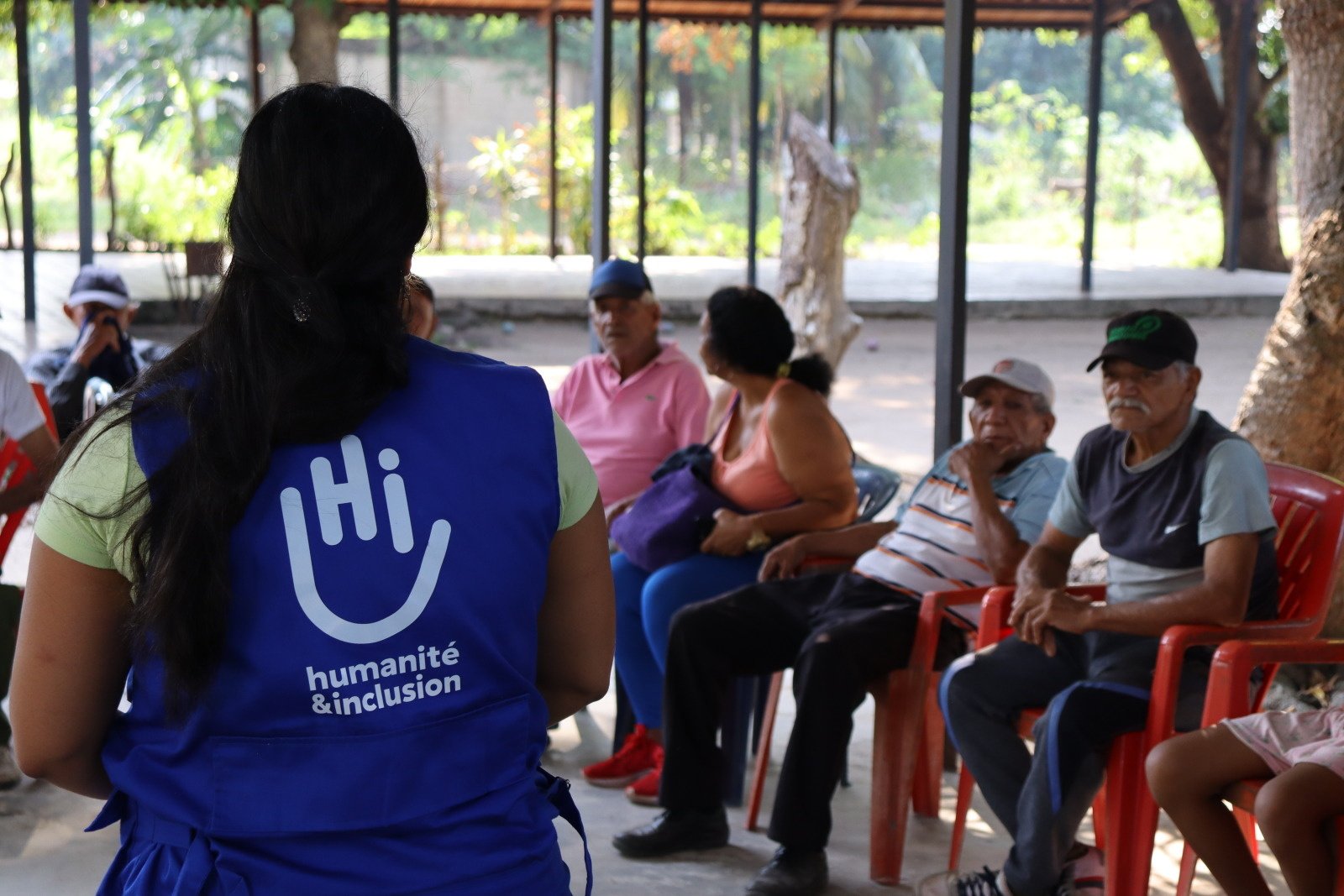A change in lifestyle brings new diseases
 Wesiyuma Angelito Hernández, 48, is a member of the Ye'kwana people. He has been working for the Organisation of Indigenous Peoples of the Amazon (ORPIA) for over 10 years, promoting unity, the defence of territory and human rights within his community.
Wesiyuma Angelito Hernández, 48, is a member of the Ye'kwana people. He has been working for the Organisation of Indigenous Peoples of the Amazon (ORPIA) for over 10 years, promoting unity, the defence of territory and human rights within his community.
"There is a real need for health care here," explains Wesiyuma. "We used to be very healthy communities when we lived far enough apart. Then, a few decades ago, we created one big community to protect our culture and promote self-determination. We left our mountains and the cold areas where we used to live and moved down to the savannah, near the river and the mosquitoes. That's when diseases like measles, malaria and chickenpox started to appear."
Yet, for the people living in remote areas, access to healthcare is not always guaranteed. As Wesiyuma explains, "My community is about a day's boat ride down the river, followed by a two-day walk. That's why it's so difficult for us to transport patients or attend medical appointments."
Promoting access to care and prevention
 To help address these issues, for the past year, HI has been running a project that provides support to more than 190,000 people in Venezuela and Colombia. In the state of Amazonas in Venezuela, HI is working with the Huottuja, Kurripaco, Warekenay Jivi and Piapoco communities to identify their needs. The members of these communities are involved in the project, like Wesiyuma, who is helping HI with its implementation.
To help address these issues, for the past year, HI has been running a project that provides support to more than 190,000 people in Venezuela and Colombia. In the state of Amazonas in Venezuela, HI is working with the Huottuja, Kurripaco, Warekenay Jivi and Piapoco communities to identify their needs. The members of these communities are involved in the project, like Wesiyuma, who is helping HI with its implementation.
As part of the project, HI is improving access to safe sanitation facilities and food security. Psychosocial support teams are also deployed to provide a space for dialogue and listening to create the right conditions for positive mental health.
"We run our activities with volunteers from the communities who help us translate our messages. This has a very positive effect, particularly with our psychosocial support activities, because people feel that communication is not an obstacle and that someone is listening to them," explains Rogxana Pérez, HI’s Mental Health and Psychosocial Support Officer.
HI is also active in the water, sanitation and hygiene sectors, carrying out awareness and prevention sessions on disease transmission and providing residents with hygiene kits including underwear, reusable or disposable sanitary protection, a comb and shampoo to prevent lice, soap, a toothbrush and toothpaste, etc.
Respecting ancestral customs
All the project’s activities are carried out with respect for the ancestral knowledge of the communities. This close collaboration has helped to develop the skills of the community volunteers, who in turn train their peers.
"Our intervention was new for the Indigenous peoples, as they had never worked with an approach centered on their ancestral beliefs and knowledge before. But for us, respecting their worldview is essential, as is carrying out prior consultations and working jointly with the leaders of each community," concludes Alejandro Rivas, HI's project manager.



 Wesiyuma Angelito Hernández, 48, is a member of the Ye'kwana people. He has been working for the Organisation of Indigenous Peoples of the Amazon (ORPIA) for over 10 years, promoting unity, the defence of territory and human rights within his community.
Wesiyuma Angelito Hernández, 48, is a member of the Ye'kwana people. He has been working for the Organisation of Indigenous Peoples of the Amazon (ORPIA) for over 10 years, promoting unity, the defence of territory and human rights within his community. To help address these issues, for the past year, HI has been running a project that provides support to more than 190,000 people in Venezuela and Colombia. In the state of Amazonas in Venezuela, HI is working with the Huottuja, Kurripaco, Warekenay Jivi and Piapoco communities to identify their needs. The members of these communities are involved in the project, like Wesiyuma, who is helping HI with its implementation.
To help address these issues, for the past year, HI has been running a project that provides support to more than 190,000 people in Venezuela and Colombia. In the state of Amazonas in Venezuela, HI is working with the Huottuja, Kurripaco, Warekenay Jivi and Piapoco communities to identify their needs. The members of these communities are involved in the project, like Wesiyuma, who is helping HI with its implementation.
